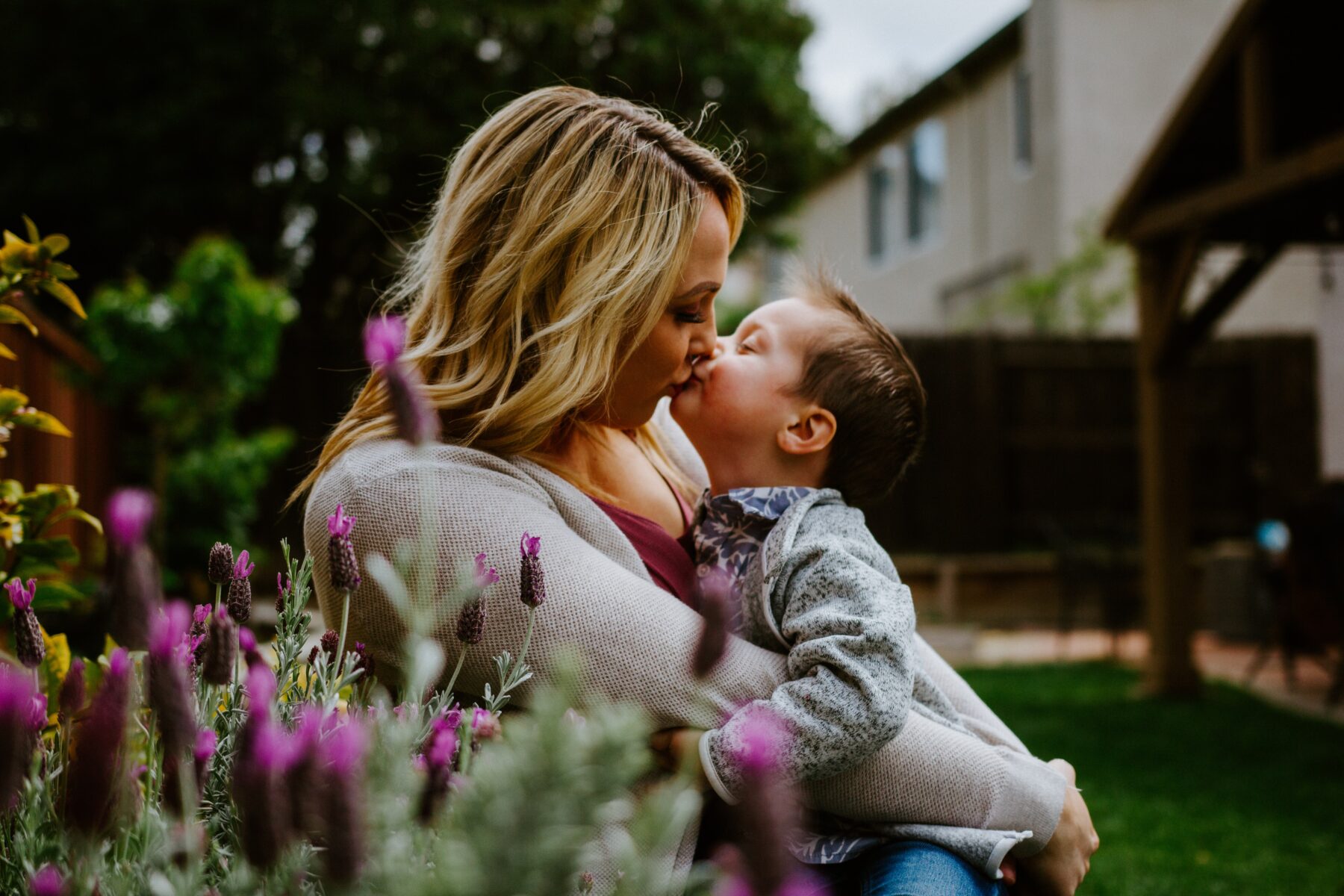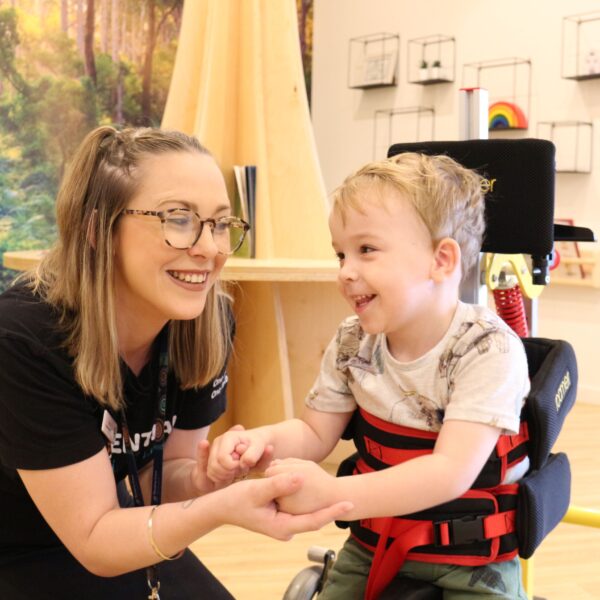Inclusive practices growing for children, but what about parental experiences?

Sue Wiedermann is an early childhood teacher (ECT) who has worked with children across mainstream kindergartens, early intervention programs, supported playgroups and parent support groups for more than 30 years.
Throughout her career she has seen a gradual shift in the attitudes and barriers to inclusion, and a significant improvement in educator’s ability and eagerness to try different strategies, and to modify their environment or program to ensure that all children can be successfully included and have their developmental needs and interests met.
Despite these gains, however, there has been little change in how parents of children with disabilities are impacted by this inclusion process.
“Regardless of the developmental gains of their children, many parents still state that they themselves don’t feel welcome, included or understood in these settings. They report that they feel anxious, stressed, powerless and worried that their child’s position there is conditional,” she reports.
To foster a greater sense of understanding about this crucial aspect of the parent and family experience of accessing early childhood education and care (ECEC), Ms Wiedermann has prepared the following article, which is based on her professional experiences and the outcomes of a research project completed during her Masters in Education.
“While working in early intervention a few years ago, I became concerned about the wellbeing of many parents I was working with,” she began.
“Their mental health appeared to be negatively impacted by the inclusion process. I was completing my Masters in Education at the time, so decided to complete a research project looking at this issue. I compared the literature with the personal stories of these parents and found many concerning correlations.”
While Ms Wiedermann found considerable evidence to support the value of inclusive practices in supporting children with additional needs to learn alongside their peers, there was less evidence to support the perspective of both the Early Years Learning Framework (2009) and the Victorian Early Years Learning and Development Framework (2011), which both state the importance of family centered-practice, collaborative partnerships and creating a sense of belonging for families within their service, when it comes to children with additional needs.
Family centered-practice is defined as a partnership that values family knowledge, promotes family choice and decision making, is flexible and individualised, empowers parents and treats parents with respect and dignity (Dunst, 2002; Saffigna, Franklin, Church & Tayler, 2013).
When done correctly it should focus on family strengths and on developing collaborative relationships between parents and professionals (Blue-Banning et al., 2004).
“So if family centered-practice is being implemented, parents should be feeling welcome, understood and able to contribute to their child’s learning and developmental experiences,” Ms Wiedermann reasoned.
In instances where these principles are not followed, she continued, the impact on parents with a child with a disability could be quite significant.
“These parents already are experiencing higher levels of stress, anxiety and depression than other parents (Resch et al., 2012; Smith et al., 2001; Hallberg, 2014; Zablotsky et al., 2013),” she explained.
“Many of these parents are in a state of nonfinite loss and grief, explained by Bruce & Shultz (1998) as a continuous process of trying to grieve for the child they lost and cope with the ongoing challenges of raising a child with a disability. Many parents of young children with disabilities report feeling a sense of guilt and fear over not being able to do enough for their child, and have feelings of self-doubt and lack confidence over parenting their child.”
Feelings of being scrutinized, judged and having a lack of privacy over their family life are also in play, and “given that many parents are already feeling this way, if they then don’t feel welcome, respected, understood or listened to, it is possible that their emotional state will deteriorate.”
Research from Blue-Banning et al. (2004) shows that parents feel the quality of their partnerships with professionals directly impacts upon their overall quality of life. A challenging aspect of inclusion for parents is establishing these trusting relationships.
“Many parents state that they feel powerless, patronized, intimidated, are not listened to, respected or treated as equal by professionals (Bridle, 2005; Blue-Banning et al., 2004; Todd, 2003). Untactful remarks, ineffective or untimely communication and negative comments about their child can lead to parents feeling anxious, angry, uncomfortable, unconfident and withdrawn (Blue-Banning et al., 2004; Lilley, 2013; Todd, 2003),” Ms Wiedermann explained.
Communicating in positive and respectful ways is another component of family centered-practice, a clear requirement of the EYLF (2009) and the VEYLDF (2011) and a necessary aspect of collaborative partnerships.
Parents interviewed expressed that they have been spoken to in ‘quite rude and disrespectful ways’ with tones of frustration, affecting their feeling of being welcome or of belonging.
“Parents commented to me that their depression had definitely worsened since their child started at kinder and childcare. Many parents reported feeling anxious while their child was at the centre, worrying if they will receive a phone call saying they have to collect their child, and feeling anxious every time they walked in to collect their child in case they were told something negative.”
Parents also reported feeling anxious that their child’s position in the service was conditional. They were aware that it is unlawful for educational services to ask their child to leave because they have a disability, but if the service argues that having them there creates unnecessary hardship, then they can ask the child to leave as they are unable to support the child’s needs.
A way in which many parents reported to deal with these feelings was to disengage or keep quiet. Several parents reported that they were too exhausted or scared to continually approach the educators for fear that they would make the situation worse for their child or gain a reputation for being a ‘complaining parent’.
Parents also discussed how other parents and children could make their experience quite distressful. To avoid this many parents would quickly leave and try not to be around other parents at pick up or drop off time. This behavior then makes it very hard for them to develop relationships with other parents, which is an important aspect of feeling they belong.
“The parent stories and the literature show that inclusion can be a very stressful and anxious time for parents,” Ms Wiedermann said.
“This stress and anxiety is not necessarily dependent upon how positive the experience is for their child’s development, learning and wellbeing. The stress the parents feel seems to be related to the quality of partnerships they have with educators, how well they can communicate with educators and how welcome they feel in the centre. This stress presents itself as anxiety, depression, feeling hurt, unwelcome, disempowered and not valued.”
“Research has shown that if parents are actively involved in their child’s learning and development, then they will have better educational outcomes (Siraj-Blatchford et al., 2010),” she continued.
“I would argue that if parents are not capable or willing to be involved in the inclusion process due to such things as stress, anxiety, and depression then this might have a direct impact on the educational outcomes of these children.”
“We as educators therefore need to not only consider our program and interactions with children but also what impact these have on parents, to ensure the best outcomes for children and families.”
Popular

Quality
Practice
Provider
Research
Workforce
Honouring the quiet magic of early childhood
2025-07-11 09:15:00
by Fiona Alston

Practice
Provider
Quality
Research
Workforce
New activity booklet supports everyday conversations to keep children safe
2025-07-10 09:00:16
by Fiona Alston

Quality
Practice
Provider
Workforce
Reclaiming Joy: Why connection, curiosity and care still matter in early childhood education
2025-07-09 10:00:07
by Fiona Alston












